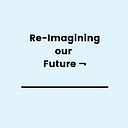Re-Imagining Clean Water
Water, like most other natural resources, has become commodified? The actions of humans have turned natural abundance into unnatural scarcity.
We have learned to become dependent on systems that we do not understand (and that have become quite unnatural and disconnecting). Can you imagine if we returned to more natural, traditional, systems that are more connecting? Systems that enable us to be more actively self-reliant than passively dependent, and seemingly helpless? Can you imagine if we learned how to purify our own water? Compost our own waste? Grow our own food? Bake our own bread?
Availability of clean drinking water has been regarded as a basic human right by both the UN and WHO. Lack of clean water leads to unsafe sanitation and hygiene practices. According to the UN’s 2010 report, more people die due to unsafe drinking water than war. In fact, it is estimated that 1 to 2 billion people lack access to safe drinking water worldwide.
On the other hand, the volume of industrial and domestic waste is increasing day by day. Sadly, when this waste-water is treated, a lot of residual chemical still remains
Here’s something that I would suggest to overcome lack of drinking water and to avoid chemical treatment of unsafe drinking water — building a low cost effective filter! (See Figure 1) It can be a local indigenous solution to ensure safe and clean drinking water, free from toxic chemical byproducts.
In such a filter, physical impurities like leaves, mud and other debris can be removed via a layer of gravel and coarse sand. A layer of charcoal can help in the removal of chemical impurities and toxins. An interesting element that could be added to this filter is a layer of fungal mat. Recent research has shown that fungi can act as a biological filter. There is substantial evidence now, that fungi not only kills bacteria in water but also releases anti-bacterial metabolites that act as natural antibiotics in our body. This fungal mat can also help in removal of heavy metals, hydrocarbons and excessive nutrients from urban water and grey water. Talking specifically about the pathogens in water, the fungal mat filter helps in removal of E-Coli, Coliform bacteria and malaria parasites from the water.
Lead Author: Shrey Gupta
Shrey is a microbiologist by profession with 9+ years of academic and self taught experience in the field. He is helping people build harmony between self and nature while collectively exploring the hidden world of microbes. To be a part of such an exploration, join one of his upcoming workshops.
Anchor Author: Daniel Rudolph (paragraph 2)
Daniel Rudolph is interested in exploring alternative, experiential learning opportunities for people of all ages. He is passionate about forming community, and building public spaces for meaningful, transformational gathering. Currently he is spending a lot of his time learning juggling and facilitating gatherings. He also enjoys writing and sharing poetry. Daniel is a very curious and playful person and is always open for creative collaborations.
